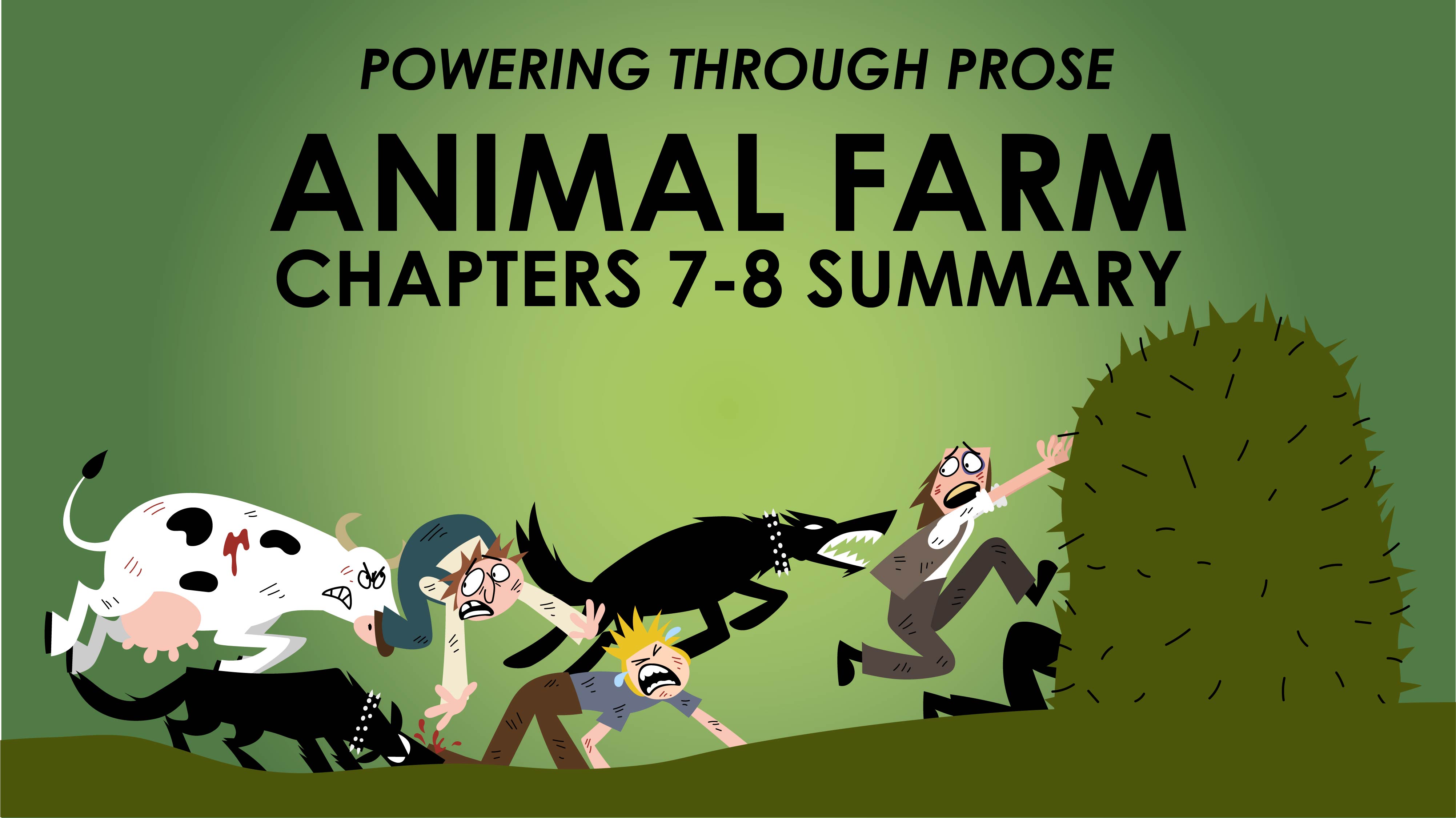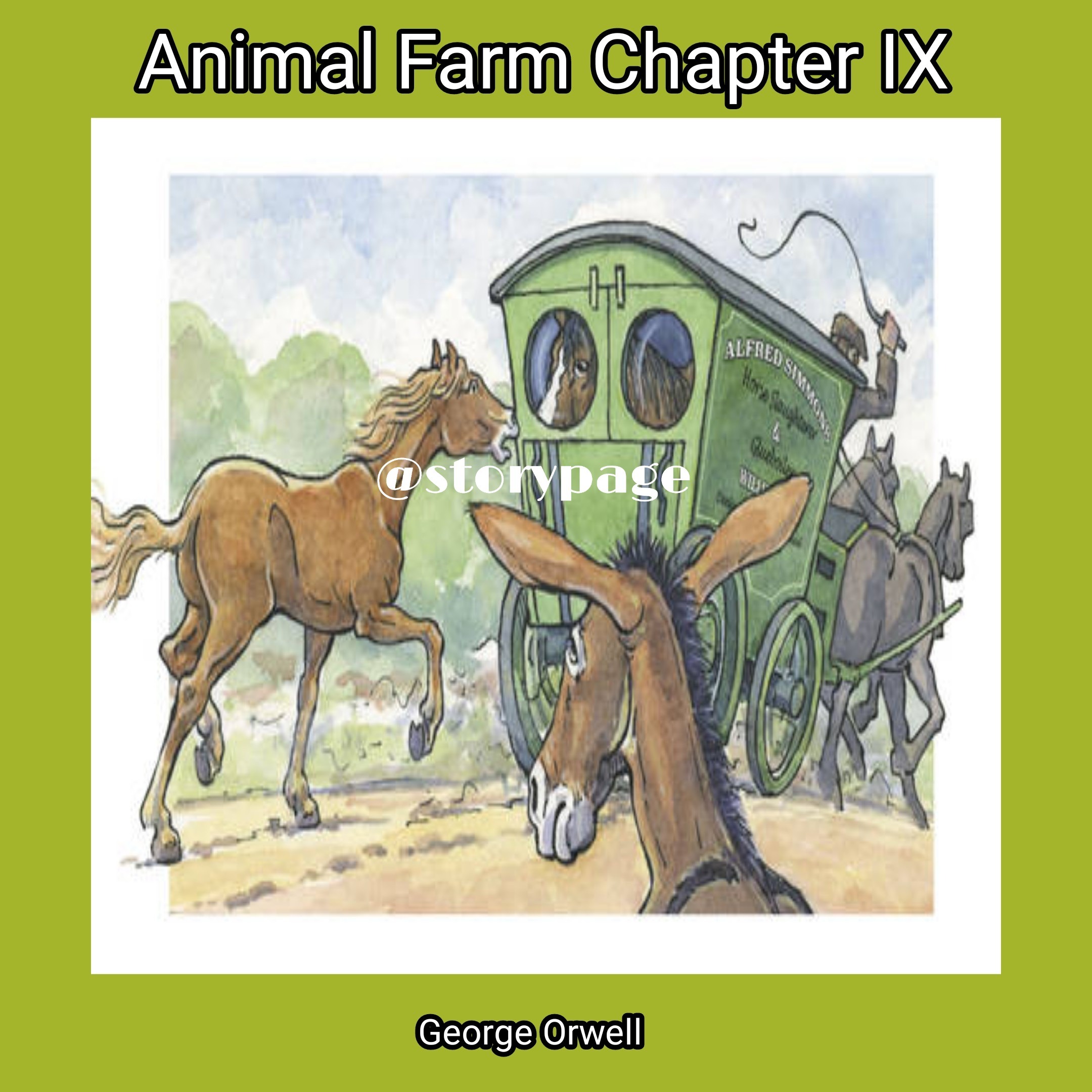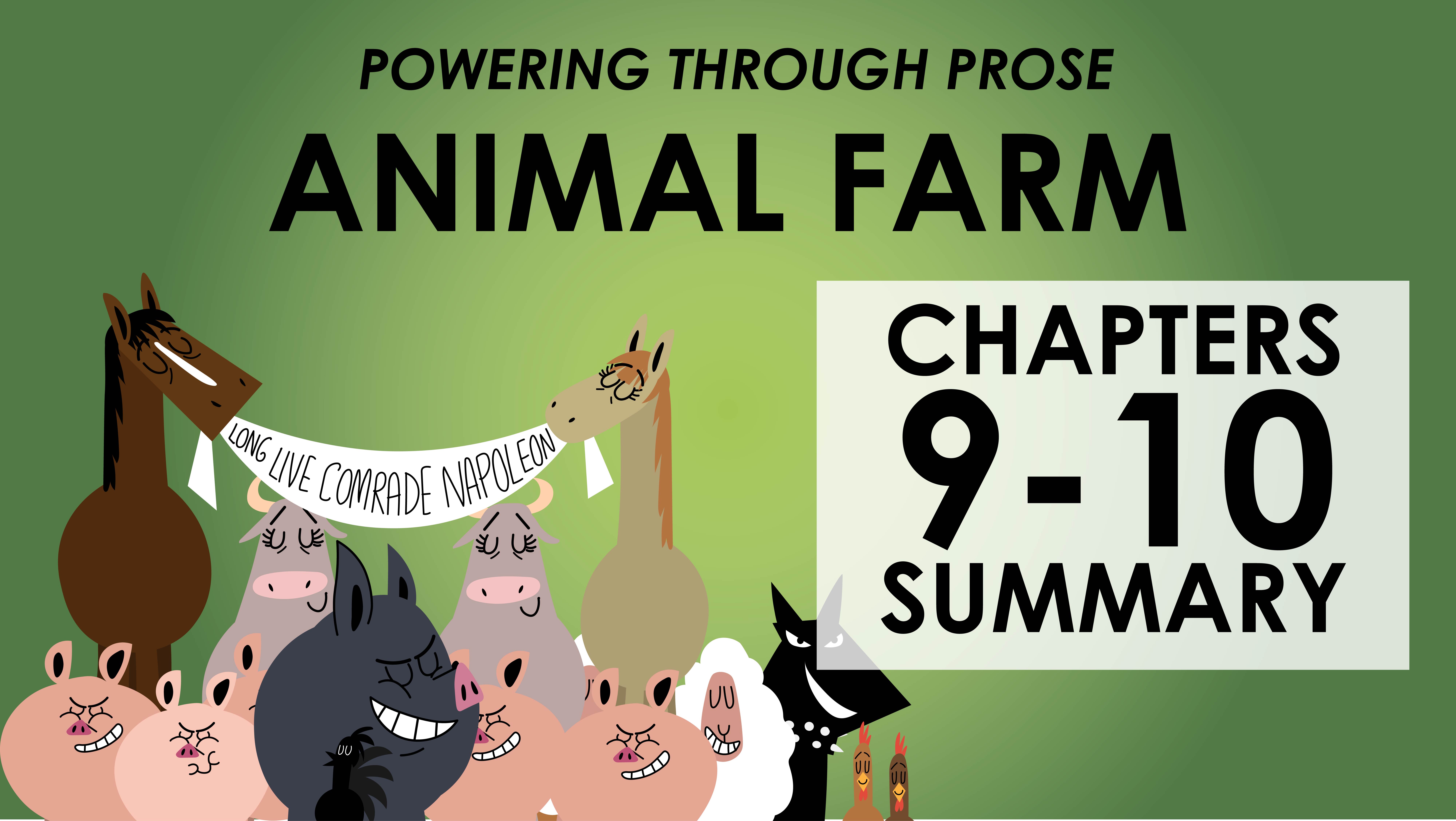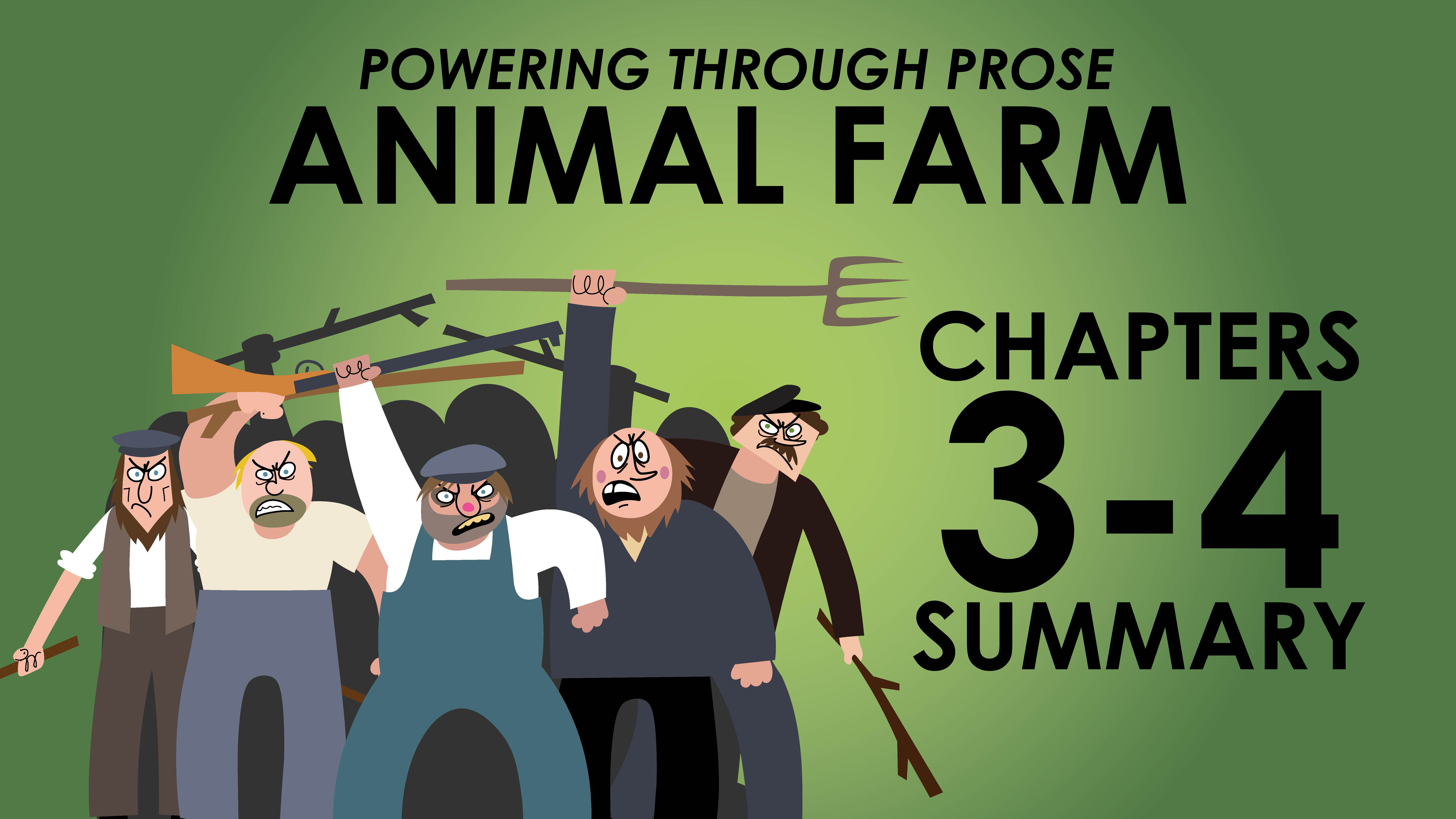Animal Farm Chapter 9 Summary: Rebellion, Manipulation, and the Corruption of Ideals sets the stage for this enthralling narrative, offering readers a glimpse into a story that is rich in detail and brimming with originality from the outset. This chapter delves into the power dynamics, propaganda, betrayal, and the evolution of Animalism on the farm, providing a thought-provoking exploration of the consequences of revolution and the dangers of unchecked power.
As the animals struggle to maintain their newfound freedom and equality, Napoleon and Snowball emerge as leaders with differing ideologies. Napoleon’s cunning and manipulative tactics gradually erode the unity and principles of Animal Farm, while Snowball’s idealism and progressive ideas are ruthlessly suppressed. The pigs’ skillful use of propaganda and the exploitation of Boxer’s loyalty further cement their control, leading to a profound distortion of the farm’s original ideals.
Rebellion and Leadership

The power dynamics on Animal Farm are complex and volatile, with the animals’ rebellion against Mr. Jones leading to conflicts and tensions. Mr. Jones, a ruthless and exploitative farmer, represents the oppressive human authority that the animals seek to overthrow. His cruel treatment and neglect motivate the animals to unite under the leadership of Napoleon and Snowball, two pigs who emerge as the primary figures in the rebellion.
Napoleon, a cunning and ambitious pig, embodies the darker aspects of power. His charisma and persuasive abilities enable him to manipulate the other animals, gradually consolidating his control over the farm. In contrast, Snowball, an idealistic and intellectual pig, represents the promise of a more equitable and democratic society. His plans for the farm’s future clash with Napoleon’s dictatorial aspirations, setting the stage for a power struggle that will ultimately shape the farm’s destiny.
Napoleon’s Leadership Style
Napoleon’s leadership style is characterized by manipulation, deception, and brute force. He uses propaganda to control the animals’ thoughts and actions, distorting the principles of Animalism to justify his own actions. He employs a network of loyal followers, including Squealer, the farm’s propagandist, to spread his version of events and suppress dissent. Napoleon’s willingness to use violence and intimidation further cements his authority, creating a climate of fear and obedience among the animals.
Impact on the Farm’s Future
Napoleon’s leadership has a profound impact on the farm’s future. His authoritarian rule undermines the ideals of equality and freedom that inspired the rebellion. The animals’ hopes for a just and prosperous society are gradually eroded as Napoleon’s tyranny takes hold. The farm becomes a microcosm of the oppressive human world it sought to escape, with Napoleon as the new master.
Betrayal and Division

Napoleon’s betrayal of Snowball and the other animals stemmed from his lust for power and control. By eliminating his rivals, he aimed to consolidate his authority and establish an oppressive regime on the farm.
Napoleon’s actions had devastating consequences for the farm’s morale and stability. The animals lost trust in their leaders, and fear and suspicion spread throughout the community. The once-united animal society became fragmented and divided, with loyalists supporting Napoleon and dissidents facing persecution.
Boxer as a Symbol of Loyalty and Exploitation, Animal farm chapter 9 summary
Boxer, the powerful and hardworking horse, represents the exploited and loyal members of the animal community. Despite his unwavering dedication to the farm, he is repeatedly taken advantage of by Napoleon and his cronies. Boxer’s tragic fate serves as a poignant reminder of the sacrifices made by those who toil for the benefit of others, often without recognition or reward.
The Evolution of Animalism

Animalism, the guiding ideology of Animal Farm, underwent a significant transformation from its initial inception to its eventual corruption. The ideals of equality, freedom, and fairness espoused by the animals in the beginning gradually gave way to a distorted and oppressive system under the leadership of the pigs.
Factors Contributing to the Distortion of Animalism
Several factors contributed to the distortion of Animalism’s original principles:
- Power Dynamics: The pigs, led by Napoleon, gradually consolidated their power, silencing dissenting voices and manipulating the other animals through propaganda and intimidation.
- Self-Interest: The pigs’ desire for power and privilege led them to prioritize their own interests over the collective good of the farm.
- Lack of Education: The other animals, lacking the intellectual capacity and critical thinking skills, were easily swayed by the pigs’ rhetoric and unable to resist their oppressive measures.
Parallels to Real-World Revolutions
The evolution of Animalism on Animal Farm mirrors patterns observed in numerous real-world political revolutions:
- Idealistic Beginnings: Revolutions often start with lofty ideals and promises of a better future.
- Power Struggles: As power is consolidated, factions emerge, leading to internal conflicts and the suppression of dissent.
- Erosion of Principles: Over time, the original principles of the revolution are distorted or abandoned, as self-interest and power dynamics take precedence.
The lessons learned from Animal Farm serve as a cautionary tale about the potential pitfalls of political revolutions and the importance of vigilance in safeguarding the ideals that inspire them.
Last Point: Animal Farm Chapter 9 Summary

In Animal Farm Chapter 9 Summary: Rebellion, Manipulation, and the Corruption of Ideals, Orwell masterfully weaves a cautionary tale about the fragility of revolution and the corrosive effects of power. Through the lens of the animals’ experiences, he exposes the dangers of unchecked ambition, the power of manipulation, and the importance of holding leaders accountable. This chapter serves as a poignant reminder of the complexities of political revolutions and the eternal struggle between idealism and pragmatism.
FAQs
What are the key themes explored in Animal Farm Chapter 9?
The key themes explored in Animal Farm Chapter 9 include the dynamics of power and leadership, the dangers of propaganda and manipulation, the consequences of betrayal and division, and the evolution and corruption of ideals.
How does Napoleon’s leadership style impact the farm’s future?
Napoleon’s leadership style is characterized by cunning, manipulation, and a ruthless pursuit of power. His actions gradually erode the unity and principles of Animal Farm, leading to a distortion of the farm’s original ideals and a decline in the animals’ well-being.
What is the significance of Boxer’s character in Chapter 9?
Boxer represents the exploited and loyal members of the animal community. His unwavering dedication to the farm and his inability to see the pigs’ manipulation highlight the dangers of blind obedience and the importance of critical thinking.



